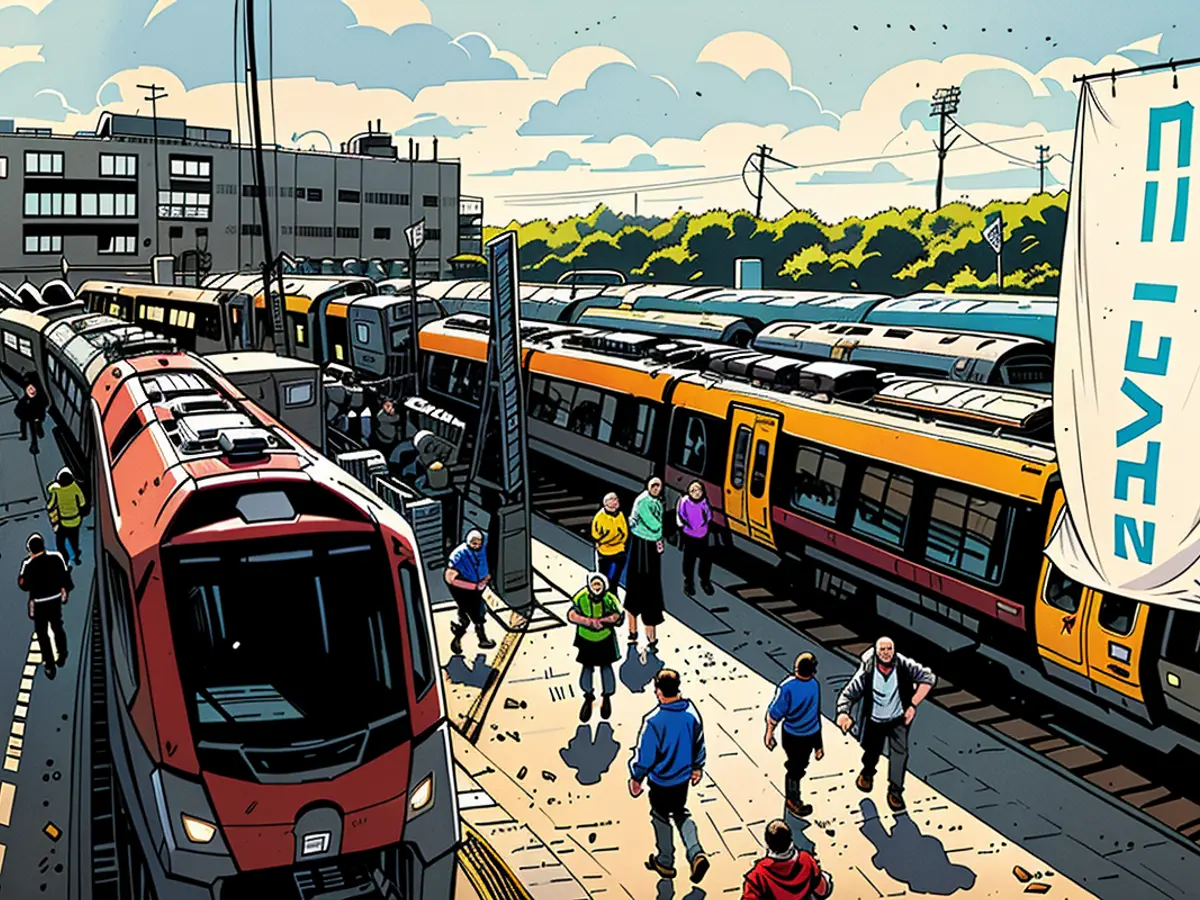"Up to six times more is spent on rail in Switzerland "
The Swiss Stadler Group builds railway vehicles for Germany as well. Manager Jure Mikolcic talks about the slow expansion of the German rail network, battery-powered trains, and the differences to the rail leader country Switzerland.
During the European Championship, foreign visitors discover that our railway system is not particularly good, criticism is mounting. Is this justified?
Jure Mikolcic: There is certainly a grain of truth to that. We have had an investment backlog for many, many years. It is indeed a long-term market. The development cycles of vehicles are foreseeable, as is their lifespan. Therefore, the demand can be predicted quite well.
Now more money is flowing into rail transport in Germany, at least an attempt is being made to resolve the investment backlog. Do you benefit from this?
We are beneficiaries of the situation insofar as any expansion of demand in our industry comes to us. When the number of tenders increases and the fleets are modernized, we benefit from this. It's not just about building new vehicles, but also about modernizing old series. The problem is rather the predictability.
What do you mean by that?
For us, it is particularly difficult to plan investments in the rail infrastructure and to allocate funds. It will not fail on our part as an industry, we are able to offer the technical solutions. We just need to know when they will be needed.
German rail network is only 60% electrified, for the rest, diesel drives are often used. You offer battery-powered trains as well. How does that work?
We have already provided an experimental vehicle for testing in 2016 to test battery technology. The possible range is constantly increasing. There are different battery technology options, and we are also investing a lot in battery management systems to build up know-how. We have now provided 55 vehicles with battery technology for the federal state of Schleswig-Holstein, which is the least electrified state.
Where is the current limit of battery-electric range?
Approximately at 80 kilometers. We have of course planned reserves. In addition, there will be significantly more in the coming years.
Stadler is a Swiss corporation. It is often said that Switzerland has a very good railway system. What can Germany learn from the Swiss in this regard?
There is a fundamental attitude towards the product and the public transport system rail in Switzerland. There is a broad consensus that the rail and public transport are important. An investment fund was even founded. And you have to realize that in Switzerland, five to six times as much is invested per capita in the rail as in Germany. That means that the Swiss want to use the product, they are willing to invest, and they have thought about the most effective way to do it.
You are also Vice President of the Railway Industry Association. Would such a fund be a way for Germany as well?
As an industry association, we advocate for this. This creates the predictability we need. Everyone knows very exactly when and how money can be invested. You can plan accordingly.
Listen to the new episode of "Die Stunde Null":
· What is demanded in German tones
· What impact the pandemic had on rail construction
· What role hydrogen plays in rail transport
All episodes can be found directly at RTL, Apple, or Spotify, or via Google.
The transport policy in Germany could learn from Switzerland's approach, which involves a broader consensus and significant investment in the rail and public transport system. This has led to five to six times more investment per capita in rail infrastructure in Switzerland than in Germany.
Despite the slow expansion of the German rail network and the investment backlog, the demand for modernizing old series and building new vehicles in Germany increases as more funds are allocated to rail transport.









